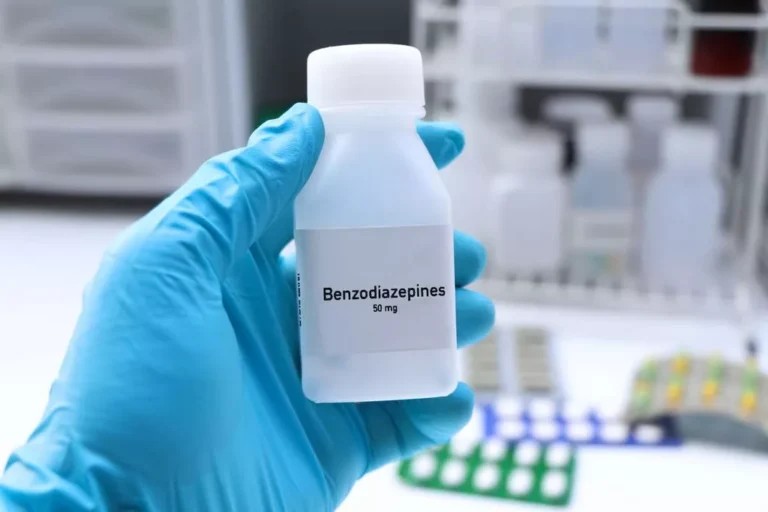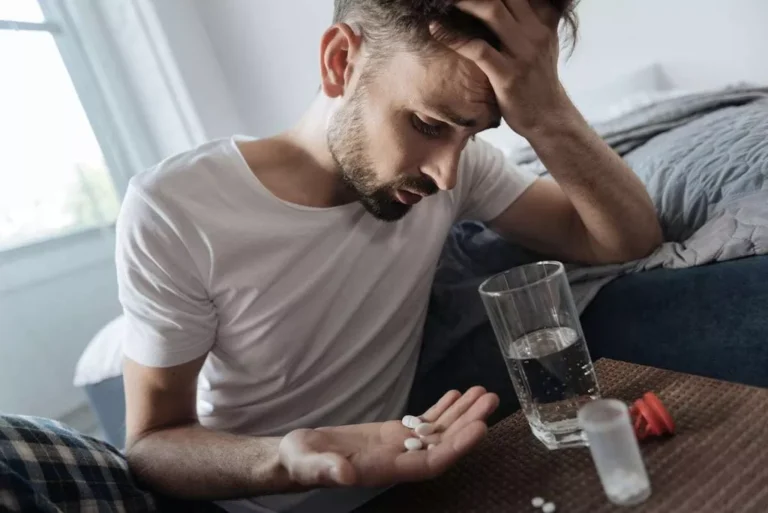Overcoming Benzodiazepine Withdrawal: Symptoms and Treatment

Benzodiazepines are psychoactive medications commonly prescribed to alleviate a range of conditions, including anxiety disorders, insomnia, and epilepsy. The development of dependence on benzos arises from the unregulated consumption of the drug. The primary risk lies in the unforeseeable repercussions of its usage. Severe withdrawal syndrome is a major cause for concern.
If you’ve been prescribed a benzo, it’s crucial to understand the withdrawal symptoms. Equally significant is gaining insight into the withdrawal timeline. In the article, we’ll shed some light on withdrawal and the duration it may persist.
What is Benzodiazepine?
Benzodiazepines function as medications that block receptors. This category of substances exerts a calming influence on the central nervous system. It causes a slowdown in body and brain functions. It induces drowsiness and promotes muscle relaxation.
They work by dampening the central nervous system by interacting with GABA receptors. They play a role in inhibiting the functions of the brain’s central nervous and limbic systems. There are benzodiazepine receptors adjacent to GABA receptors. They react to medications and intensify the effectiveness of GABA.
The drug is swiftly absorbed. It hits its peak concentration in the body about 60 minutes after intake. Its effect lasts approximately 8-10 hours. The body eliminates the drug within 2-4 days.
Benzos are not as addictive as barbiturates or other potent drugs. Still, when you stop using the medication, it leads to withdrawal syndrome. The primary concern in addiction development isn’t just the withdrawal. It’s the potential aftermath: lethargy, diminished responsiveness, and intense drowsiness. Reduced attention and slower reactions heighten the risk of accidents. Moreover, prolonged usage of the drug triggers shifts in personality. It makes the individual more self-centered and prone to violating moral standards.

Take back control of your life and start on the road to recovery now.
Intricacies of Benzodiazepine Withdrawal
Dependency arises from consistently taking too much of the medication or because of prolonged use. Frequently, individuals think that the prescribed dose isn’t sufficient. This prompts them to escalate the number of pills they consume in the hope of alleviating unpleasant symptoms. A pathological urge for the drug is identified in cases of prolonged use. Thus, the medication is recommended in periodic courses when extended therapy is necessary. Some patients, fearing the resurgence of negative symptoms, persist in using the substance even during breaks.
While benzodiazepine withdrawal is typically not life-threatening, in some instances, it might lead to seizures and delirium. In extreme cases, it may result in fatal outcomes.
Benzos may also cause physical dependence. Your body gets accustomed to them, needing the substance to function correctly. Such dependency creeps in with repeated use over time, not just with benzos but also with opioids and alcohol.
When you find yourself grappling with withdrawal, it’s a clear signal that your body has become physically reliant on these medications. Such dependence might develop even if you’ve followed the prescribed usage guidelines. It’s one of the numerous reasons why extended use of benzos is generally not advised. Long-term use may also pave the way for misuse, a form of sedative use disorder. It increases the likelihood of cognitive problems and raises the risk of overdose as well.

Symptoms
Withdrawal might bring about a mix of both physical and psychological symptoms. Some of the signs to watch out for include:
- Nausea and vomiting
- Diarrhea
- Shakiness or tremors
- Muscle pain or stiffness
- Headaches
- Abnormal heartbeats
- Sweating
Some withdrawal symptoms can take a more serious turn, with seizures, hallucinations, or delusions entering the scene. Particularly for older people, there’s an added risk of heart issues, like a potential heart attack. If any of these heavyweight symptoms appear, it’s crucial to seek immediate medical supervision.
Considering the discomfort and potential dangers tied to benzodiazepine withdrawal, slamming the brakes on benzos abruptly, especially after a few days of use, isn’t the way to go. Regardless of how long you’ve been on the benzo, talking with your healthcare provider before hitting the stop button is a wise move. They can guide you on a gradual dose reduction plan that suits your needs.
Timeline
The timeline for withdrawal is a bit of a puzzle. It hinges on factors like how long and at what dose you’ve been taking these medications. Quitting shorter-acting benzos such as alprazolam, oxazepam, and lorazepam might cause withdrawal symptoms sooner. This is compared to the longer-acting ones like chlordiazepoxide, clorazepate, or diazepam. They take a bit more time to make their presence felt.
With shorter-acting drugs, symptoms might make an appearance within a swift 2 days. The longer-acting ones, like diazepam, might take up to 5 days to kick in. Initially, you might grapple with mild symptoms, i.e., trouble sleeping and some anxiety. But as time goes on, more intense withdrawal symptoms could linger for up to 4 weeks. It becomes a rollercoaster, and higher doses of benzos tend to dial up the intensity of these withdrawal experiences. According to statistics, the heavy hitters in the shorter-acting benzo category are often the culprits behind the most intense withdrawals.
After stopping the drugs, some find themselves in what’s colloquially known as “post-withdrawal disorder.” Studies haven’t entirely researched this phenomenon. Still, some suggest that some individuals may battle lingering benzo withdrawal symptoms for up to a year or even longer. Such endurance seems to be more familiar with prolonged use and the use of shorter-acting benzos than their longer-acting counterparts.
Why is It Crucial to Treat Benzodiazepine Withdrawal
Don’t hesitate to reach out to your doctor if you have withdrawal symptoms while stepping back from benzodiazepines. Or if you’re dealing with signs of chronic abuse, like headaches, anxiety, weakness, or insomnia. High doses of benzodiazepines can’t be mixed with alcohol or other substances. Such a combination can cause dizziness, blurred vision, slurred speech, poor balance, or breathing challenges. These red flags could be signaling an emergency — a potential overdose, a perilous situation that, particularly when coupled with alcohol and other drugs, might spiral into a coma or even lead to death.
Navigating benzodiazepine withdrawal demands caution and proper handling. Quitting drugs abruptly, without a gradual lowering, raises the stakes. It possibly triggers a life-threatening grand mal seizure. If you go into withdrawal without reducing, you may get unsettling possibilities of delirium and hallucinations. It’ll propel you into a reality-altering and perilous journey. It’s a risky road that’s best avoided.
Benzodiazepine Withdrawal Treatment
The best way to deal with withdrawal and dependence involves reducing medication doses. They must be carefully managed. Despite using this method, withdrawal symptoms may still emerge. It shows the need for treatment in an inpatient rehab under the watchful eye of medical professionals. Following a gradual reduction in dosage, specific medications are employed to eliminate and cleanse the body of benzos as part of detox. In detoxification scenarios, benzos like diazepam or clonazepam might come into play. Employing these drugs helps in gradually decreasing the dose while keeping symptoms in check.
In addition to the pharmacological aspect, mental health support takes center stage in aiding individuals. CBT, or support groups, helps them manage heightened anxiety with coping strategies and unearth the underlying reasons that led to the addiction. Such a holistic approach aims to address both the physical and emotional aspects of withdrawal and dependence. It promotes a comprehensive and effective recovery process.

This can be a difficult journey, but you don’t have to go it alone. Let us be your guide and provide you the environment needed to regain control of your life and begin the path to recovery.
EcoSoberHouses as a Chance to Start Anew
Recovery is hard. But, with a community of peers and caring managers at EcoSoberHouses, you can find lasting sobriety and a better future. A fresh start demands consistent support. EcoSoberHouses community stands as a pivotal source of that assistance. Our houses prioritize a secure and well-maintained living space as a replacement of the chaotic environments that may have contributed to addiction. A supportive environment is key to your way back to society. House managers diligently enforce the adherence to house rules for all clients. EcoSoberHouses’ commitment is unwavering, as they strive to make your journey more manageable in every possible way.




